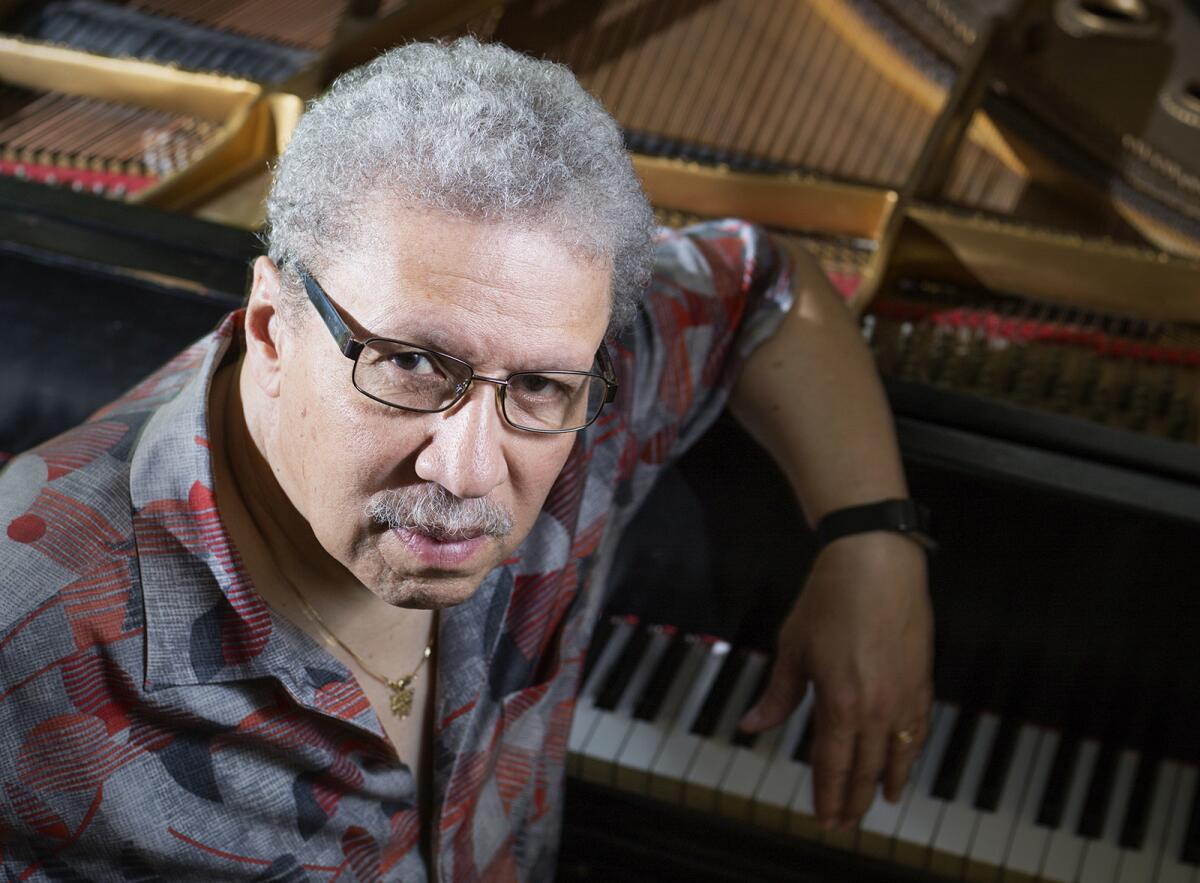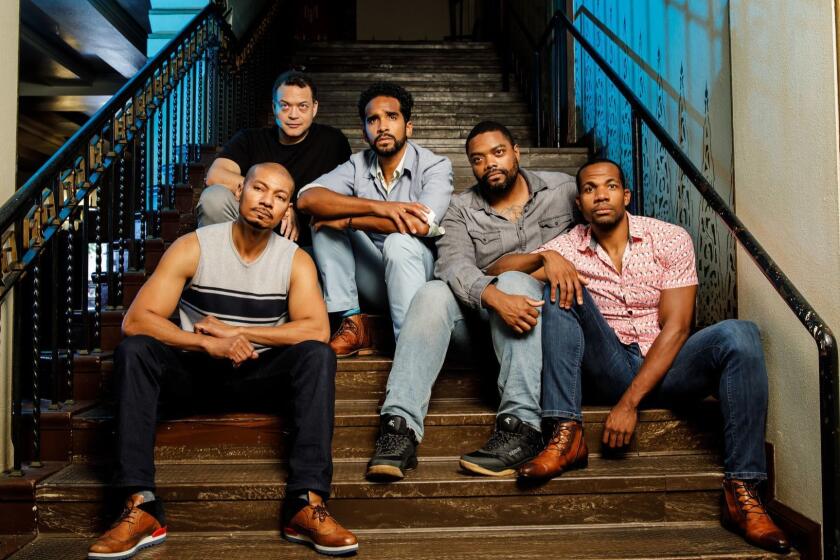‘Central Park Five’ composer Anthony Davis wins the Pulitzer Prize for music

- Share via
Composer Anthony Davis was in a Zoom meeting with fellow faculty members from UC San Diego when he received a call with the news: Davis had won the 2020 Pulitzer Prize for music for his operatic tale of racial injustice, “The Central Park Five.”
Davis, a music professor, is still getting the hang of using the video conferencing platform, and he thought he had muted himself when he answered the call. It turned out he had done the opposite.
“I pushed the wrong button, and so the whole faculty heard the announcement,” Davis said after his win. The move prompted one of his colleagues to call the incident “the best Zoom bomb ever.”
The moment of levity was a welcome one for Davis, who had taken a sabbatical from teaching to attend a since-canceled March residency at the Bogliasco Foundation in Genoa, Italy, where he had been named a spring 2020 fellow. He had plans to work on two operas including “The Darkest Light in the Heart,” about the aftermath of the 2015 mass shooting at Mother Emanuel AME Church in Charleston, S.C., in which a white supremacist killed nine African American members during bible study.
Davis has long prioritized telling black history through opera. His first opera, “X: The Life and Times of Malcolm X,” opened in 1986. In 1997, he premiered “Amistad,” based on the rebellion of Mende captives on a Spanish slave ship.
The Pulitzer committee called “The Central Park Five,” with a libretto by Richard Wesley, “a courageous operatic work, marked by powerful vocal writing and sensitive orchestration, that skillfully transforms a notorious example of contemporary injustice into something empathetic and hopeful.”
Long Beach Opera premiered the work last June to rave reviews, including one from Times critic Mark Swed, who wrote that “Davis’ supercharged score grippingly conveys the claustrophobia of a racist legal system and society from which there was, for these five innocent boys and their families, no exit.”
The Long Beach opening came just two weeks after the release of Netflix’s four-part series “When They See Us,” which reignited public interest in the trial, imprisonment and exoneration of the young men — four black and one Latino — wrongly convicted of the brutal rape of a female jogger in Central Park in1989. Their ordeal served as a touchstone for discussions and protests involving racial injustice in America.
The opera opens with five white doors stretched across the stage.
Davis lived in New York during the Central Park jogger case. Nearly 30 years later, he began working on “The Central Park Five” around 2014 after reading the libretto by Wesley. In 2016, he staged what he called a “rough pass” at the opera in New Jersey called “Five.”
Revisions included the addition of President Trump singing about bringing back the death penalty. To capture the essence of the times and the emotional intensity of the teens’ experience, Davis drew inspiration from music of the era, including R&B boy groups Take 6 and Boyz II Men and the hip-hop group Public Enemy.
“Opera is sometimes off-putting for our community,” Davis told The Times in 2019. “We can make it ours, make it serve our purposes and serve the purpose of telling our stories.”
Even though his Italian journey was canceled, Davis said he has managed to get plenty of work done while sheltering in San Diego with his wife and son, who plays for the Pittsburgh Pirates’ minor league team in Greensboro, N.C., but came home to wait out the coronavirus closures.
“This is the most time I’ve spent with him since he was maybe 14,” said Davis, pointing out the silver linings of his situation.
“There were are a lot worse places to be,” he said. Plus, he added, he hasn’t yet had to face the challenges of teaching online, although he suspects he may yet have to do so in the fall.
In the meantime, he is incredibly grateful for, and thoroughly surprised by, his Pulitzer win, which he said is “a tribute to Long Beach Opera, because they’ve been such an advocate for new opera and they did such a fantastic production.”
More to Read
The biggest entertainment stories
Get our big stories about Hollywood, film, television, music, arts, culture and more right in your inbox as soon as they publish.
You may occasionally receive promotional content from the Los Angeles Times.













